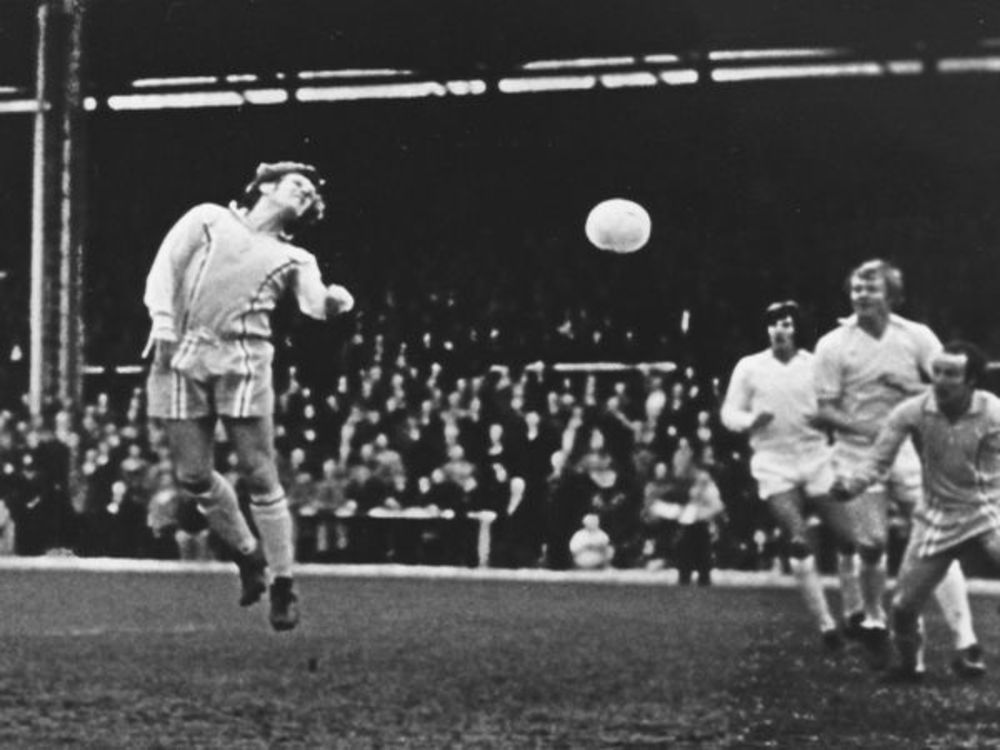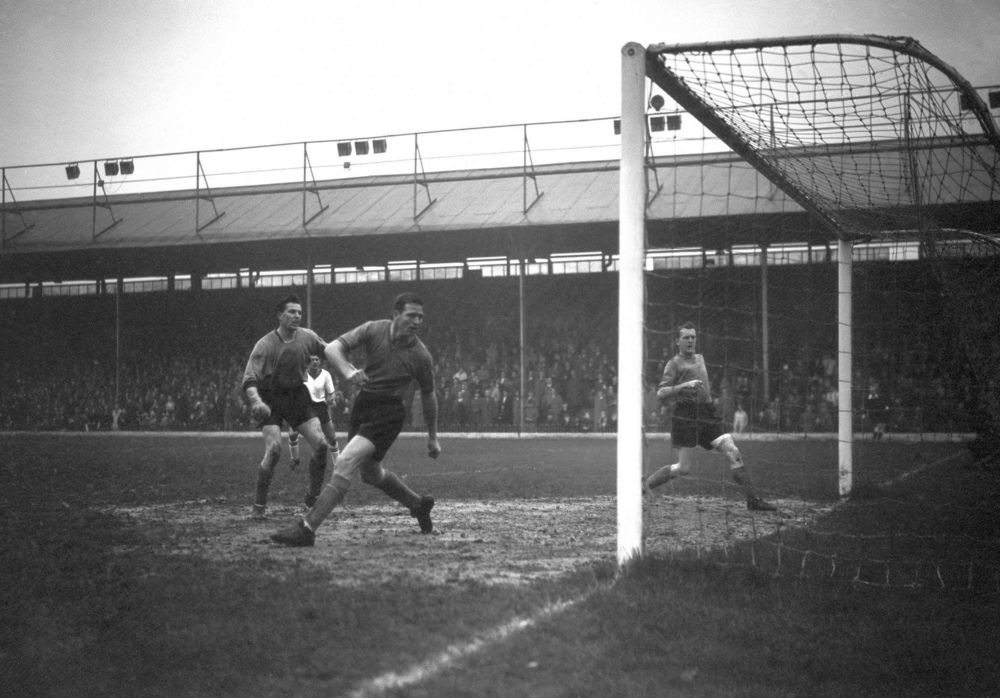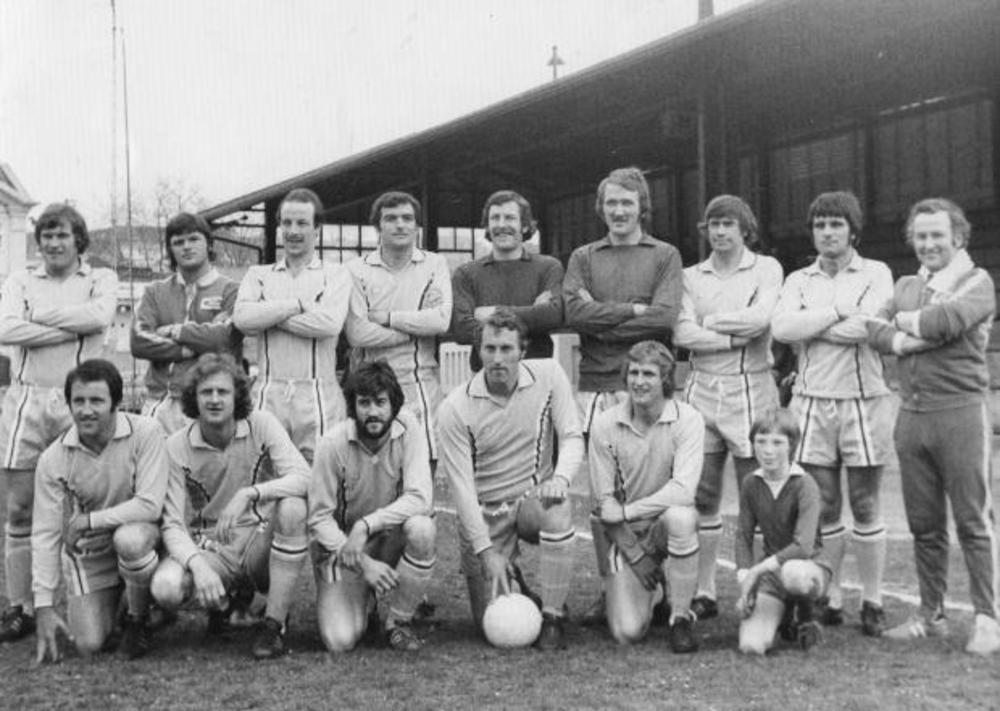
In the late 1970s, Minehead were reckoned to be one of the top six non-League clubs in the country.
However, their fall down the Pyramid was dramatic, although there were signs of seeds of recovery before lockdown occurred.
Minehead was originally formed in 1889 and spent their early years in local competitions.
They joined the Western League at the start of the 1924/25 season, but after Division Two had diminished to just eight clubs, they returned to the Somerset Senior League for 1928/29, remaining in the league until the Second World War.
After hostilities ended, the club enjoyed success in, firstly the North Devon Senior League, followed by the East Devon & Exeter League, returning to the Western League ranks for the 1949/50 season in its Division Three.
The club turned semi-professional in 1950/51 under former Exeter City captain Steve Walker as player-manager, and in the late 1950s became one of the strongest forces in the league under the guidance of Bristol-based former Exeter and Cheltenham Town player Ron Gingell.
Although they remained in the Western League for 23 seasons, in spite of being one of the most consistent teams in the league, Minehead never actually won the championship, although they finished as runners-up twice in 1966/67 and 1971/72.
They finally joined the Southern League in 1972, finishing fifth in Division One South.
It at this time that the club employed someone as player-manager who would become a legend in the town and the wider non-League fraternity, Bob Boyd, who went on to become undoubtedly Minehead`s most successful manager.
After leading the club to the Division One South title in 1975/76, Boyd steered Minehead to their pinnacle in the non-League Pyramid when they finished second behind Wimbledon in the Southern League Premier Division – meaning they were technically the 95th best team in England that year!

FA Cup v Swansea
He also managed the team that played in front of 14,000 fans at Portsmouth in the Second Round of the FA Cup in 1976/77, having beaten Swansea City in the previous round.
Much of his time with the north Somerset club was spent as player-manager – a dominant 6`2” figure at the centre of their defence. But he could also play and had a thunderous shot on him.
During his Minehead career Boyd made an impressive 453 appearances, scoring 70 goals.
Just 22 players turned out for Minehead in that 1976/77 campaign in which they played 69 games in total and scored a total of 124 goals.
In later years, Boyd went on to be a director at Bristol City and was also part of the 1982 Board which helped save the club after the Robins suffered a series of relegations.
Negotiations with the ‘Ashton Gate Eight’ helped to ensure the survival of the club back then following a period in Division One.
Boyd also helped form the Boco Boys club in Bristol in 1978 with John Cummins.
Today, the club exists as AEK-BOCO FC, with almost 500 children on the books playing in the Hanham Minor League, Avon Youth League and Bristol Girls League.
Boyd, who lived in Burnham-on-Sea, passed away in June 2018 following a heart attack, aged 70.
During the Boyd era, there were some notable players donning the royal blue strip.
Striker Andy Leitch scored 36 goals in 75/76 - the highest tally recorded while Minehead were a Southern League side - closely followed by Jimmy Jenkins and Derek Bryant, who both managed 30.

Gerry Cakebread
Goalkeeper Gerry Cakebread still holds the record for the most consecutive appearances for Brentford, not missing a game in 187 between November 1958 and March 1963.
In total, he made nearly 350 appearances for the Bees winning Division Four in 1962/63 and was an inductee of the club's `Hall of Fame`.
After a couple of seasons in the Southern League with Hillingdon Borough, he moved down to the West Country and had spells with Taunton Town and Barnstaple Town before signing for Minehead in 1976.
His replacement between the sticks was another keeper who made over 250 Football League appearances, John Macey.
The Bristolian played for Grimsby Town and, most notably, Newport County before signing for Minehead in 1977.
Ex-Bristol Rovers favourite Bobby Jones and former Wales international midfielder Brian Godfrey also had spells at the Recreation Ground.
As Minehead were considered to be amongst the top non-League clubs in the country, they were invited to represent England in the Anglo-Italian Cup competition during 1978.
They joined Nuneaton Borough, Bangor City, Bath City, Maidstone United and Wealdstone in the competition.
Having won both matches at home against Reggina and Arezzo, Minehead lost both return matches in Italy against Treviso and Udinese.
Within a few short years Udinese had progressed through to the Italian Serie A, with their ground being chosen as a venue for the World Cup finals in 1990!
More history was created the following season when Leitch found his name in the record books by scoring in six consecutive FA Cup matches, equalling Jeff Astle's record.
Leitch had a header cleared off the line with the keeper beaten during Minehead's Second Round tie at home to Exeter City, which would have given him the record outright.

Minehead 75/76 (Minehead left to right, back row - Steve Carter, Steve Risdale, Alan Impey, Derek Bryant, John Macey, Roger Ford, Brian Godfrey, Tony Clausen, Brian Hurford (trainer); front - Micky Burns, Andy Leitch, Jimmy Jenkins, Bob Boyd, Bobby Brown, Chris Hurford (mascot))
Minehead were beaten 3-0 by the Devon club, a tie which attracted the club's second-highest home attendance of 3,050.
Although the club were still a cup force to be reckoned with, their stunning strike partnership of Leitch, Jenkins and Bryant parted company.
Struggling to score goals they were relegated from the Southern League Premier Division, finishing 17th of 20, just one point from safety. However, the name had been put firmly on the non-League map.
On the occasion of the Southern League's centenary year in 1994, manager Bob Boyd was chosen as one of the top 100 managers in its history, where his name stands proudly alongside such names as Malcolm Allison, Ron Atkinson and Barry Fry.
The 1979/80 season saw are structuring of the non-League Pyramid, with the creation of the Alliance Premier League and the Southern League, losing 13 clubs in the switch, opted for a Midland/Southern divide.
Minehead competed in the Midland Division, and after leading the division from January, finally finished as runners-up to Bridgend Town.
Season 1980/81 saw them finish 12th but the club were starting to experience financial problems, and the decision was made to withdraw from the Southern League at the end of the 1982/83 campaign.
Back in the Western League, the team were brought back to reality with an 8-0 thrashing at Frome Town on the opening Saturday of the new season.
Relegated to the First Division in 1989, the following year saw things get progressively worse, finishing bottom of the lower league.
With no relegation that season, the blues lived to fight again, and the following season, manager Andy Hodgson led a locally based team to the First Division championship, gaining a record number of points.
Teenage striker Gareth Morgan scoring 44 times in 40 appearances which remains a Western League record for the club.
Further off-the-field problems soon hit the club and in the 1993/94 season, with 6 points being deducted, the side were relegated again, staying in the First Division until 1998/99 when they won the championship.
Their only league defeat came in the final match, away to neighbours Ilfracombe Town, having been presented with the trophy several games earlier.
The high point of this season again being a lethal strike partnership, this time between Nick Woon, Gareth Morgan and Jason Charlesworth.
All three appearing in the Western League’s top six scorers, with over 30 goals each.
On their arrival back in the Premier Division, finances had dried up, with many of the successful team moving on.
Woon stayed though and was again amongst the top scorers in the league. However, his goals alone could not prevent the side finishing bottom, avoiding relegation due to a restructuring of the league.
The club were relegated the following season and languished near the bottom of the First Division.
Even a change of name to Minehead Town failed to help and the end of the 2009/10 season saw the club finish 10 points adrift at the bottom of the table and, having flirted with relegation for several seasons, were relegated into the Somerset County League Premier Division.
The club now looks to re-establish itself and to build again for the future.

Most clubs are looking for volunteers. Find out more on the button below:
www.PitchingInVolunteers.co.ukAll the news and results in one place.
REGISTER